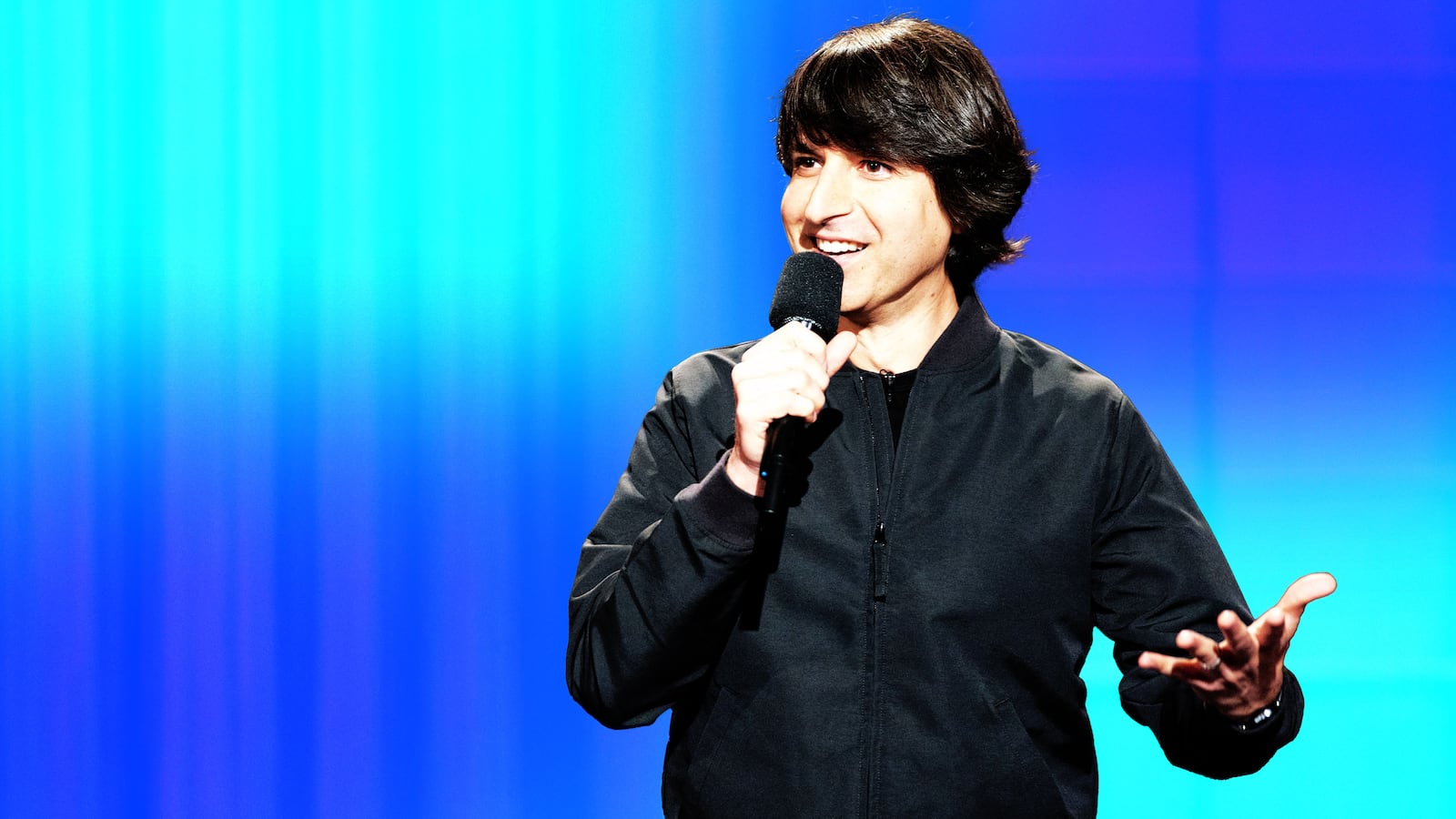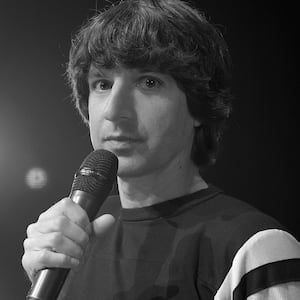Demetri Martin just put out his first new stand-up hour in six years. But when he sits down for this interview with The Last Laugh podcast, he’s about to tape the second of what will be a trilogy of specials for Netflix. It’s quite a comeback moment for the (shockingly) 50-year-old comedian, who has remained mostly out of the spotlight in recent years as provocative and autobiographical stand-up comedy has overtaken the one-liner “joke machine” style that he has been honing for more than half his life.
In this episode, Martin breaks down the meta-concept behind his new Demetri Deconstructed special, reveals why he started bringing drawings on stage, shares his take on some of the more concerning comedy trends, and a lot more.
It was about two years ago that Martin challenged himself to write and perform three stand-up specials in succession that “each stand on their own but could have a narrative link that tied them together.”
A big part of the process has been finding ways to enhance the experience of the live audience that comes to see him on tour. In the first of the three new specials, which arrived on Netflix earlier this month, that means extra jokes using text on screen, moments where we hear his inner monologue, and even cutaways to bonus punchlines.
“What I have found is often the live show suffers a little bit when you put it on screen because you’re already removed. You’re watching an audience watching it,” he says. “So the first step with this was, why don’t I acknowledge that and try to flip it so that the viewer at home might get an even better experience than the people who saw it live?”
In one of the teasers he put out to promote the new special, Martin calls himself the “least relevant comedian of his generation” and stresses that he will not be covering “politics, race, religion, gender,” or anything personal about himself or his kids, among other hot topics.
“I’m trying to just be true to myself,” Martin tells me, explaining that one question he’s trying to answer with these specials is whether simply being funny and telling jokes is “enough” to satisfy audiences in this hyper-politicized time. He tried getting introspective on stage early in his career, but “got tired of it pretty fast,” adding, “I just couldn’t keep talking about myself that much every night.”
But introspection is not the only comedy trend he’s allergic to. At one point during the new hour, Martin appears to mock stand-up comedy’s current obsession with crowd work, asking the entire audience at once, “So where’s everybody from?”
“It feels like a virus that’s spread through stand-up,” Martin says of the TikTok-fueled fad. “I understand why. New comics or younger comics don’t want to eat up all their material. But it’s a shame what it does to the ecosystem of comedy that people consume through their screens.”
Of course, for much of Martin’s career, being a “younger comic” was kind of his brand. He even served as the “Senior Youth Correspondent” on The Daily Show, a designation he stresses wasn’t even his choice to begin with. “I was already over 30 at that point,” he remarks, noting that he would often hear from network executives, “We really like him, but he looks like he’s 15.”
Even at 50, Martin still gets tagged with the “boyish” description, something he’s more than ready to leave behind and recognizes he could probably move past with a new hairstyle. “People have given me shit for my haircut for so many years,” he says, before sharing yet another one-liner: “There’s a fine line between British Invasion and the Three Stooges.”
Listen to the episode now and follow The Last Laugh on Apple Podcasts, Spotify, Google, or wherever you get your podcasts to be the first to hear new episodes when they are released every Wednesday.








